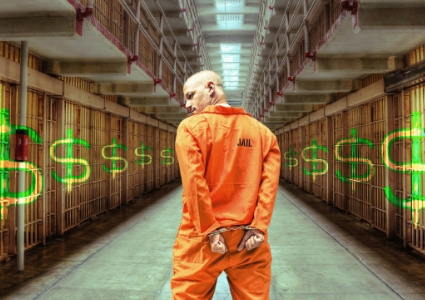Trustee Elections
These are the original issues in this subcategory
- INMATE HEALTH
- RECIDIVISM
- PRISON PRIVATIZATION
Our criminal justice system now detains about 2.3 million people in state, local, federal, juvenile and immigrant detention facilities, among others. Privately-run for-profit prisons were created in 1984. By 2017, this $4.8 billion/year industry was detaining 8.2%, or 121,420 of all US inmates. In 2013, private prison industry profits totaled about $630 million. The annual salaries of guards at private prisons is about $32,000 while our 800,000 federal prison guards average about $78,000. A 2016 Justice Dept. study found private prisons had a 28% higher rate of inmate-on-inmate assaults and more than twice as many inmate-on-staff assaults compared to federal prisons. Other studies in 2010 and 2011 found that it costs more to hold prisoners in private facilities than public ones.
Supporters claim privatized prisons are cheaper and more efficient than prisons operated by our government. They claim these jails can be built quickly, are equipped with the latest technology, are less crowded, and provide jobs for local communities.
Opponents believe that allowing the profit motive into the prison equation does not save money - it only encourages these companies to provide low-paying dangerous jobs and few, if any, economic benefits to local communities. Private prisons are expensive for inmates too, with families paying up to $24.95 for a 15-minute phone call and commissary vendors that bring in $1.6 billion a year. Critics say privatizing prisons has given these corporations and their unions an incentive to lobby against reducing prison populations, saying this industry is often the loudest voice for increased incarceration and longer prison terms.
In a recent executive order, President Biden has decided not to renew Justice Department contracts with private prisons, except for those facilities which detain undocumented immigrants. This action will end the use of private prisons when these contracts expire unless a future president rescinds Biden’s order, or until a law is passed making this change permanent.
Proposed Legislation: Reintroduction of H.R.994 - Justice is Not For Sale Act of 2021
Prospective Sponsor: Rep. Raul Grijalva (AZ)
Supporters claim privatized prisons are cheaper and more efficient than prisons operated by our government. They claim these jails can be built quickly, are equipped with the latest technology, are less crowded, and provide jobs for local communities.
Opponents believe that allowing the profit motive into the prison equation does not save money - it only encourages these companies to provide low-paying dangerous jobs and few, if any, economic benefits to local communities. Private prisons are expensive for inmates too, with families paying up to $24.95 for a 15-minute phone call and commissary vendors that bring in $1.6 billion a year. Critics say privatizing prisons has given these corporations and their unions an incentive to lobby against reducing prison populations, saying this industry is often the loudest voice for increased incarceration and longer prison terms.
In a recent executive order, President Biden has decided not to renew Justice Department contracts with private prisons, except for those facilities which detain undocumented immigrants. This action will end the use of private prisons when these contracts expire unless a future president rescinds Biden’s order, or until a law is passed making this change permanent.
Proposed Legislation: Reintroduction of H.R.994 - Justice is Not For Sale Act of 2021
Prospective Sponsor: Rep. Raul Grijalva (AZ)

- I oppose reforming current prison privatization policy and wish to donate resources to the campaign committee of Speaker Mike Johnson (LA).
- I support prohibiting private for-profit entities from operating confinement facilities (e.g., prisons) or providing electronic monitoring of released persons at the federal, state and local levels. I also support establishing various requirements related to the standards of detention and availability of services at confinement facilities including:
1.) Limits on the fees and charges for financial services (e.g., money transfer services)
2.) Caps on the rates charged for communications services.
3.) Detention standards and oversight requirements related to the detention of noncitizens.
3.) Community-based alternatives to the detention or separation of family units apprehended under immigration authorities.
And wish to donate resources to the campaign committee of Rep. Raul Grijalva (AZ) and/or to an advocate group currently working with this issue.
- I support prohibiting private for-profit entities from operating confinement facilities (e.g., prisons) or providing electronic monitoring of released persons at the federal, state and local levels. I also support establishing various requirements related to the standards of detention and availability of services at confinement facilities including:
1.) Limits on the fees and charges for financial services (e.g., money transfer services)
2.) Caps on the rates charged for communications services.
3.) Detention standards and oversight requirements related to the detention of noncitizens.
3.) Community-based alternatives to the detention or separation of family units apprehended under immigration authorities.
And wish to donate resources to the campaign committee of Rep. Raul Grijalva (AZ) and/or to an advocate group currently working with this issue.
There has been $0.00 pledged in support of this issue
Trustee Election - Opening Date
November 11, 2024
Trustee Election - Closing Date
November 18, 2024